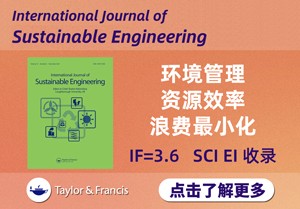-
Bold, Humble, Collaborative, and Virtuous: The Future of Theory Development in Educational Psychology Educ. Psychol. Rev. (IF 10.1) Pub Date : 2024-11-11 Jeffrey A. Greene, Kristy A. Robinson
Throughout 2023 and 2024, we served as co-guest editors of a topical collection in Educational Psychology Review on The Past, Present, and Future of Theory Development in Educational Psychology. In this topical collection, authors of prominent theories in the field were invited to reflect upon how they generated, developed, and iterated their ideas, as well as what the future might hold for their theories
-
Effects of School-led Greenspace Interventions on Mental, Physical and Social Wellbeing in Children and Adolescents: A Systematic Review Educ. Psychol. Rev. (IF 10.1) Pub Date : 2024-11-11 Vi Ly, Dianne A. Vella‐Brodrick
-
Dynamic or Static Goal Regulation: Implications of Weak and Strong Bonds Between Autonomous/Controlled Reasons and Aims for Achievement Goal Striving Educ. Psychol. Rev. (IF 10.1) Pub Date : 2024-11-09 Stefan Janke
-
Semi-automating the Scoping Review Process: Is it Worthwhile? A Methodological Evaluation Educ. Psychol. Rev. (IF 10.1) Pub Date : 2024-11-09 Shan Zhang, Chris Palaguachi, Marcin Pitera, Chris Davis Jaldi, Noah L. Schroeder, Anthony F. Botelho, Jessica R. Gladstone
-
Needing to shout to be heard? Caregiver under‐responsivity and disconnection between vocal signaling and autonomic arousal in infants from chaotic households Child Dev. (IF 3.9) Pub Date : 2024-11-08 S. V. Wass, C. S. Smith, F. U. Mirza, E. M. G. Greenwood, L. Goupil
Children raised in chaotic households show affect dysregulation during later childhood. To understand why, we took day‐long home recordings using microphones and autonomic monitors from 74 12‐month‐old infant–caregiver dyads (40% male, 60% white, data collected between 2018 and 2021). Caregivers in low‐Confusion Hubbub And Order Scale (chaos) households responded to negative affect infant vocalizations
-
Life After High School: The Employment Experiences of Autistic Young Adults Rem. Spec. Educ. (IF 2.3) Pub Date : 2024-11-06 Bonnie R. Kraemer, Lindsay F. Rentschler, Brianne Tomaszewski, Nancy McIntyre, Leann Dawalt, Kara A. Hume
The present study examined the employment landscape for 129 autistic young adults. Data were collected over multiple waves including high school and early adulthood. Parents participated in interviews and responded to questions regarding young adult employment outcomes, on-the-job supports, job match, and overall job satisfaction. The predictive relationship between in-school variables and employment
-
The Intervention Effects on Teacher Well-being: A Three-Level Meta-Analysis Educ. Psychol. Rev. (IF 10.1) Pub Date : 2024-11-05 Yingxiu Li, Xiang Wang, Junjun Chen, John Chi-Kin Lee, Zi Yan, Jian-Bin Li
-
Discovering Internal Validity Threats and Operational Concerns in Single-Case Experimental Designs Through Directed Acyclic Graphs Educ. Psychol. Rev. (IF 10.1) Pub Date : 2024-11-04 Garret J. Hall, Sophia Putzeys, Thomas R. Kratochwill, Joel R. Levin
-
To heal, grow, and thrive: Engaging Indigenous paradigms and perspectives in developmental science Child Dev. (IF 3.9) Pub Date : 2024-11-04 Monica Tsethlikai, Ashley Cole, Adam J. Hoffman, Megan Bang, Florrie Fei‐Yin Ng
A focus on positive child development among Indigenous children has largely been absent from developmental science. In this special section of Child Development, we sought to address continuing inequity in representation and valuing Indigenous knowledge and voices by soliciting articles that identified cultural and strengths‐based factors Indigenous children, youth, and families cultivate and leverage
-
Bigger versus smaller: Children's understanding of size comparison words becomes more precise with age Child Dev. (IF 3.9) Pub Date : 2024-11-01 Alissa L. Ferry, Mia G. Corcoran, Emily Williams, Sheila M. Curtis, Cathryn J. Gale, Katherine E. Twomey
The ability to compare plays a key role in how humans learn, but words that describe relations between objects, like comparisons, are difficult to learn. We examined how children learn size comparison words, and how their interpretations of these change across development. One‐hundred‐and‐forty children in England (36–107 months; 68 girls; majority White) were asked to build block structures that were
-
Relationships Between Experiences of Autonomy and Well(Ill)-Being for K-12 Youth: A Meta-Analysis Educ. Psychol. Rev. (IF 10.1) Pub Date : 2024-10-31 Amanda Vite, Erika A. Patall, Man Chen
-
Effectiveness of Unproctored vs. Teacher-Proctored Exams in Reducing Students’ Cheating: A Double-Blind Randomized Controlled Field Experimental Study Educ. Psychol. Rev. (IF 10.1) Pub Date : 2024-10-30 Li Zhao, Junjie Peng, Shiqi Ke, Kang Lee
-
Overcoming human exceptionalism: The role of ethical nature‐culture relations in the developmental contexts of indigenous children Child Dev. (IF 3.9) Pub Date : 2024-10-30 Emma Elliott, Jillian Fish
Indigenous populations, including American Indians, Alaska Natives, First Nations, and other first peoples worldwide, have been largely overlooked in child development research. This commentary examines how Indigenous relationality intersects with developmental science, advocating for a shift from human exceptionalism to an interconnected relationality among people, land, and more‐than‐human beings
-
“Oh, the places you'll go”: The psychological consequences of omission and misrepresentation for Native children Child Dev. (IF 3.9) Pub Date : 2024-10-30 Stephanie A. Fryberg, Arianne E. Eason
All children navigate the world by searching for information in their sociocultural contexts (e.g., schools, media, laws) to make sense of their experiences and potential futures. In doing so, Native children, however, must contend with the legacy and ongoing oppression of their Peoples, communities, and ways of being. In this manuscript, we highlight how sociocultural contexts stemming from settler
-
Implications of What Works Clearinghouse Guidelines on Single-Case Design: An Investigation of Empty Training Phases Rem. Spec. Educ. (IF 2.3) Pub Date : 2024-10-30 Derek B. Rodgers, Seth A. King
The What Works Clearinghouse quality standards provide guidance regarding studies capable of supporting evidence-based practices. Standards concerning single-case designs have been extensively revised to accommodate new evaluation methods, such as the design comparable effect size. These designs often omit data in which children and other participants receive training. Recently, the What Works Clearinghouse
-
Experiences of discrimination and snacking behavior in Black and Latinx children Child Dev. (IF 3.9) Pub Date : 2024-10-29 Katherine B. Ehrlich, Julie M. Brisson, Elizabeth R. Wiggins, Sarah M. Lyle, Manuela Celia‐Sanchez, Daisy Gallegos, Anna Langer, Kharah M. Ross, Mary A. Gerend
Little is known about how discrimination contributes to health behaviors in childhood. We examined the association between children's exposure to discrimination and their snacking behavior in a sample of youth of color (N = 164, Mage = 11.5 years, 49% female, 60% Black, 40% Hispanic/Latinx). We also explored whether children's body mass index (BMI) or sleepiness moderated the association between discrimination
-
Preschoolers use probabilistic evidence to flexibly change or maintain expectations on an active search task Child Dev. (IF 3.9) Pub Date : 2024-10-29 Brooke C. Hilton, Mark A. Sabbagh
This study investigated 3‐ to 5‐year‐olds' (N = 64, 37 girls, 62.5% White, data collected between 2021‐2022) ability to use probabilistic information gleaned through active search to appropriately change or maintain expectations. In an online fishing game, children first learned that one of two ponds was good for catching fish. During a subsequent testing phase, children searched the ponds for fish
-
Are Mathematics and Writing Skills Related? Evidence from Meta-Analysis Educ. Psychol. Rev. (IF 10.1) Pub Date : 2024-10-28 Young-Suk Grace Kim, Dandan Yang, Jinkyung Hwang
-
Early‐life threat and deprivation: Are children similarly affected by exposure to each? Child Dev. (IF 3.9) Pub Date : 2024-10-28 Kristina Sayler, Katie A. McLaughlin, Jay Belsky
Extensive evidence documents negative consequences of adversity for children's development. Here, we extend such work by looking beyond average effects to consider variation in susceptibility to both threat and deprivation in terms of cognitive and social–emotional development, using an influence‐statistic methodology. Data come from the ongoing Avon Longitudinal Study of Parents and Children (N =
-
The More the Better? A Systematic Review and Meta-Analysis of the Benefits of More than Two External Representations in STEM Education Educ. Psychol. Rev. (IF 10.1) Pub Date : 2024-10-25 Eva Rexigel, Jochen Kuhn, Sebastian Becker, Sarah Malone
-
Playful activities mitigate relations between parental mental health difficulties and child verbal outcomes Child Dev. (IF 3.9) Pub Date : 2024-10-24 Paige M. Nelson, Francesca Scheiber, Haley M. Laughlin, Ö. Ece Demir‐Lira
This study examined the role of parental involvement in the home learning environment in the association between parental mental health and child cognitive performance. In a sample of 174 three‐ to five‐year‐old children (52% female, 97% White, 7% Hispanic, 2019–2022), playful activities moderated the relation between parental general depression and child verbal reasoning and acquired verbal knowledge
-
Genetic and environmental contributions to individual differences in visual attention and oculomotor control in early infancy Child Dev. (IF 3.9) Pub Date : 2024-10-24 Monica Siqueiros‐Sanchez, Giorgia Bussu, Ana Maria Portugal, Angelica Ronald, Terje Falck‐Ytter
Infants differ in their level of eye movement control, which at the extreme could be linked to autism. We assessed eye movements in 450 twins (225 pairs, 57% monozygotic, 46% female, aged 5–6 months) using the gap‐overlap eye‐tracking task. Shorter latency in the gap condition was associated with having more parent‐rated autistic traits at 2 years. Latency across the task's three conditions was primarily
-
Learning apps at home prepare children for school Child Dev. (IF 3.9) Pub Date : 2024-10-24 Frank Niklas, Efsun Birtwistle, Anna Mues, Astrid Wirth
The usage of high‐quality learning applications (apps) at home may increase children's mathematical and literacy competencies. This approach was tested in a family intervention study. Intervention families (n = 302) in two German cohorts (N = 500; M (SD)age = 61.0 (4.6) months; n♀ = 302) received tablets with newly developed learning apps focusing either on mathematical or literacy learning for every‐day
-
Charting the Murky Waters of Motivational Climate Measurement: Past Approaches and Future Directions Educ. Psychol. Rev. (IF 10.1) Pub Date : 2024-10-23 Cole D. Johnson, So Yeon Lee, Rachael Diamant, Kristy A. Robinson
-
Does working memory training in children need to be adaptive? A randomized controlled trial Child Dev. (IF 3.9) Pub Date : 2024-10-23 Regine Cassandra Lau, Peter J. Anderson, Susan Gathercole, Joshua F. Wiley, Megan Spencer‐Smith
Most cognitive training programs are adaptive, despite limited direct evidence that this maximizes children's outcomes. This randomized controlled trial evaluated working memory training with difficulty of activities presented using adaptive, self‐select, or stepwise compared with an active control. At baseline, immediately, and 6‐months post‐intervention, 201 Australian primary school children (101
-
Teachers’ Attitudes Toward Bullying and Intervention Responses: A Systematic and Meta-analytic Review Educ. Psychol. Rev. (IF 10.1) Pub Date : 2024-10-22 Molly Dawes, Sarah T. Malamut, Hannah Guess, Emily Lohrbach
-
Teachers’ Feedback on Oral Reading: A Critical Review of its Effects and the use of Theory in Research Educ. Psychol. Rev. (IF 10.1) Pub Date : 2024-10-18 Karianne Megard Grønli, Bente Rigmor Walgermo, Erin M. McTigue, Per Henning Uppstad
-
Context Matters: The Importance of Investigating Random Effects in Hierarchical Models for Early Childhood Education Researchers. Early Child. Res. Q. (IF 3.2) Pub Date : 2024-10-17 Clarissa M Corkins,Amanda W Harrist,Isaac J Washburn,Laura Hubbs-Tait,Glade L Topham,Taren Swindle
This paper highlights the importance of examining individual, classroom, and school-level variables simultaneously in early childhood education research. While it is well known that Hierarchical Linear Modeling (HLM) in school-based studies can be used to account for the clustering of students within classrooms or schools, less known is that HLM can use random effects to investigate how higher-level
-
Family functioning and child internalizing and externalizing problems: A 16‐wave longitudinal study during the COVID‐19 pandemic Child Dev. (IF 3.9) Pub Date : 2024-10-15 Hyanghee Lee, Gregory M. Fosco, Mark E. Feinberg
This study explored young children's mental health trajectories during the pandemic (May 2020 to April 2021) as well as associations with family functioning (i.e., cohesion, conflict, chaos, and routines) using data reported by 204 parents (children Mage 5.49; 45% girls, 90% White). Children's internalizing problems decreased early on with the onset of the pandemic, but then leveled off, while no change
-
The Reciprocal Relations between Externalizing Behaviors and Academic Performance among School-aged Children: A Meta-Analysis of Longitudinal Studies Educ. Psychol. Rev. (IF 10.1) Pub Date : 2024-10-14 Shixu Yan, Zhiyi Liu, Peng Peng, Ni Yan
-
The Effects of Morphological Instruction on Literacy Outcomes for Children in English-Speaking Countries: A Systematic Review and Meta-Analysis Educ. Psychol. Rev. (IF 10.1) Pub Date : 2024-10-10 Danielle Colenbrander, Alexa von Hagen, Saskia Kohnen, Signy Wegener, Katherine Ko, Elisabeth Beyersmann, Ali Behzadnia, Rauno Parrila, Anne Castles
-
Development of auditory cognition in 5‐ to 10‐year‐old children: Focus on speech‐in‐babble‐noise perception Child Dev. (IF 3.9) Pub Date : 2024-10-10 Jérémie Ginzburg, Lesly Fornoni, P. E. Aguera, Caroline Pierre, Anne Caclin, Annie Moulin
Speech‐in‐noise perception is consistently reported to be impaired in learning disorders, which stresses the importance of documenting its developmental course in young children. In this cross‐sectional study, ninety children (41 females, 5.5–11.6 years old) and nineteen normal‐hearing adults (15 females, 20–30 years old) were tested with a newly developed closed‐set speech perception in babble‐noise
-
Evaluating the Dynamics of Learning Approaches: A Systematic Review Investigating the Nexus Between Teaching Methods and Academic Performance in Medical and Dental Education Educ. Psychol. Rev. (IF 10.1) Pub Date : 2024-10-08 Marlen A. Roehe, Carmen Trost, Julia S. Grundnig, Anahit Anvari-Pirsch, Anita Holzinger
-
-
-
Cultivating emotional resilience in adolescent girls: Effects of a growth emotion mindset lesson Child Dev. (IF 3.9) Pub Date : 2024-10-05 Karen D. Rudolph, Wendy Troop‐Gordon, Haley V. Skymba, Haina H. Modi, Zihua Ye, Rebekah B. Clapham, Jillian Dodson, Megan Finnegan, Wendy Heller
To address the widespread mental health crisis facing adolescent girls, this study examined whether a growth emotion mindset lesson can enhance emotional competence. During 2018–2022, adolescent girls (Mage = 15.68 years; 66.3% White) were randomized to a growth mindset (E‐MIND; N = 81) or brain education (control; N = 82) lesson, completed the Trier Social Stressor Test, and reported on various aspects
-
Family Check-Up Online effects on parenting and parent wellbeing in families of toddler to preschool-age children. Early Child. Res. Q. (IF 3.2) Pub Date : 2024-10-05 Katherine A Hails,Anna Cecilia McWhirter,Audrey C B Sileci,Elizabeth A Stormshak
Online parenting interventions hold promise for increasing access to behavioral support for families with low income and who reside in rural areas. The current study evaluates the efficacy of a mobile app-based parenting support program, the Family Check-Up Online (FCU-O) with telehealth coaching support, for parents of children 1.5-5 years old at risk of experiencing parenting challenges. We tested
-
Does Embodiment in Virtual Reality Boost Learning Transfer? Testing an Immersion-Interactivity Framework Educ. Psychol. Rev. (IF 10.1) Pub Date : 2024-10-04 Sara Klingenberg, Robin Bosse, Richard E. Mayer, Guido Makransky
-
Task Characteristics Associated with Mathematical Word Problem-Solving Performance Among Elementary School-Aged Children: A Systematic Review and Meta-Analysis Educ. Psychol. Rev. (IF 10.1) Pub Date : 2024-10-04 T. Vessonen, M. Dahlberg, H. Hellstrand, A. Widlund, J. Korhonen, P. Aunio, A. Laine
-
Cognate beginnings to bilingual lexical acquisition Child Dev. (IF 3.9) Pub Date : 2024-10-04 Gonzalo Garcia‐Castro, Daniela S. Avila‐Varela, Ignacio Castillejo, Nuria Sebastian‐Galles
Recent studies suggest that cognateness boosts bilingual lexical acquisition. This study proposes an account in which language co‐activation accelerates accumulation of word‐learning instances across languages. This account predicts a larger cognate facilitation for words in the lower‐exposure language than in the higher‐exposure language, as the former receive co‐activation from their translations
-
Do home mathematical activities relate to early mathematical skills? A systematic review and meta‐analysis Child Dev. (IF 3.9) Pub Date : 2024-10-03 Ella James‐Brabham, Claudia C. von Bastian, Carmel Brough, Emma Blakey
Children's foundational mathematical skills are critical for future academic attainment. While home mathematical activities (HMAs) have been proposed to support these skills, the extent to which engaging in them supports mathematical skills remains unclear. This preregistered systematic review and multilevel meta‐analysis identified 351 effect sizes from 72 samples in 20 countries, exploring the relation
-
Child–father and child–mother attachment relationships in naturalistic settings Child Dev. (IF 3.9) Pub Date : 2024-10-03 Jill M. Trumbell, German Posada, Laura Anaya, Geurim Kim, Muqing Liu
This study examines paternal and maternal sensitivity as predictors of toddlers' attachment security in two naturalistic contexts. Seventy‐three mostly White middle‐class families participated between 2015 and 2019 when children (49.3% girls) were approximately 29.48 months old. Each child–parent dyad completed a home and playground visit. Findings revealed paternal and maternal sensitivity were significantly
-
An early parenting intervention focused on enriched parent–child interactions improves effortful control in the early years of school Child Dev. (IF 3.9) Pub Date : 2024-10-03 C. Bennett, E. M. Westrupp, S. K. Bennetts, J. Love, N. J. Hackworth, D. Berthelsen, J. M. Nicholson
This study examined long‐term mediating effects of the smalltalk parenting intervention on children's effortful control at school age (7.5 years; 2016–2018). In 2010–2012, parents (96% female) of toddlers (N = 1201; aged 12–36 months; 52% female) were randomly assigned to either: standard playgroup, smalltalk playgroup (group‐only), or smalltalk playgroup with additional home coaching (smalltalk plus)
-
Improving the Use of Retrieval Practice for Both Easy and Difficult Materials: The Effect of an Instructional Intervention Educ. Psychol. Rev. (IF 10.1) Pub Date : 2024-10-02 Tian Fan, Luotong Hui, Liang Luo, Anique B. H. de Bruin
-
Self-Regulated Learning Interventions for Pre-service Teachers: a Systematic Review Educ. Psychol. Rev. (IF 10.1) Pub Date : 2024-09-30 Alazne Fernández Ortube, Ernesto Panadero, Charlotte Dignath
-
The Effect of the Write, Talk, and Rewrite Dialogic Writing Treatment on Argumentative Texts: a Replication Study in Türkiye Educ. Psychol. Rev. (IF 10.1) Pub Date : 2024-09-30 Omer Faruk Tavsanli, Steve Graham, Yucheng Cao
The current study replicated an earlier investigation by Bouwer and van der Veen (2023) where 10 Grade 5 and 6 classrooms in the Netherlands (210 students) were randomly assigned to a treatment or control condition, with treatment students evidencing improvements in the quality of their essays after practice writing argumentative essays, reading and discussing them with a small group of peers, and
-
Modeling individual differences in vocabulary development: A large‐scale study on Japanese heritage speakers Child Dev. (IF 3.9) Pub Date : 2024-09-29 Maki Kubota, Jason Rothman
This study examines when the vocabulary knowledge of Japanese heritage speakers (HSs; N = 427, Mage = 9.96, female = 213) begins to diverge from monolingual counterparts (N = 136, Mage = 6.69, female = 65) and what factors explain individual differences in HS development. Vocabulary of HSs began to diverge from 5.61 years and this difference lasted until they were young adults. We also administered
-
Convergence and divergence of empathic concern and empathic happiness in early childhood: Evidence from young infants and children Child Dev. (IF 3.9) Pub Date : 2024-09-29 Maya Zach, Avigail Palgi‐Hacker, Liat Israeli‐Ran, Adi Meidan, Michal Seidmann, Ayah Hijleh, Ramon Birnbaum, Noa Gueron‐Sela, Florina Uzefovsky
While most research focused on empathic responses to negative emotions, little is known about empathy to positive emotions. We aimed to bridge this gap by examining infants' and children's empathic responses to distress and happiness, while differentiating between cognitive and emotional empathy. We conducted three studies with N = 119 3‐month‐old infants; N = 169 10‐19 months‐old infants; and N =
-
Grade Retention: The Role of Speech and Language Disorders, Race and Ethnicity, Sex, Socioeconomic Status, Special Education, and Bilingualism Rem. Spec. Educ. (IF 2.3) Pub Date : 2024-09-28 Ai Leen Choo, Caleb J. King, Brian Barger
The odds of grade retention for children with speech or language disorders were assessed using data from the National Survey of Children’s Health (NSCH), a nationally representative and cross-sectional survey of U.S. children from 2016 to 2021. Various demographic, social, and education variables were also examined to confirm prior findings with a large national cohort. Results indicate higher odds
-
Toddlers' visual exploration during decisions predicts uncertainty monitoring 1 year later Child Dev. (IF 3.9) Pub Date : 2024-09-27 Sarah Leckey, Christopher Gonzales, Diana Selmeczy, Simona Ghetti
The longitudinal relation between toddlers' behaviors in uncertain situations (e.g., information seeking, hesitation) and preschoolers' uncertainty monitoring was investigated (between 2014 and 2019 in Northern California; Time 1: N = 183, M = 28.99 months, 53% female, 67.8% White; Time 2: N = 159, M = 41.64 months, 52.2% female). Eye movements and response latencies were recorded as children identified
-
Parent emotional support alters the association between parent–child interbrain synchrony and interaction quality Child Dev. (IF 3.9) Pub Date : 2024-09-27 Jianjie Xu, Sihan Liu, Yuhao Zhu, Molly E. Hale, Qiandong Wang, Xinni Wang, Mengyu Miranda Gao, Hui Wang, Cynthia Suveg, Zhuo Rachel Han
Using functional near‐infrared spectroscopy (fNIRS) hyperscanning methodology, this study investigated whether parent emotional support moderated the relation between parent–child interbrain synchrony and interaction quality (via behavioral observation and child‐report), controlling for individual emotional distress. Eighty‐eight parent–child dyads (96.6% Han ethnicity), including a school‐age child
-
Who Are We Measuring? Teacher Effects in Gifted and Talented Teacher Rating Scales Except. Child. (IF 2.2) Pub Date : 2024-09-27 D. Betsy McCoach, Scott Peters, Anthony J. Gambino, Daniel Long, Del Siegle
Teacher rating scales (TRS) often play a part in service eligibility decisions for gifted services. Although schools regularly use TRS to identify gifted students either as part of an informal nomination process or through behavioral rating scales, there is little research documenting the between-teacher variance in teacher ratings and the consequences of such rater dependence. To evaluate the possible
-
Situating Ourselves in Coalitions With and for Exceptional Children: Editors’ Introduction Except. Child. (IF 2.2) Pub Date : 2024-09-27 Kathleen King Thorius, Endia J. Lindo, Patricia Martínez-Álvarez, Amanda L. Sullivan
-
Single- and Multilevel Perspectives on Covariate Selection in Randomized Intervention Studies on Student Achievement Educ. Psychol. Rev. (IF 10.1) Pub Date : 2024-09-25 Sophie E. Stallasch, Oliver Lüdtke, Cordula Artelt, Larry V. Hedges, Martin Brunner
-
From Hands to Mind: How Gesture, Emotional Valence, and Individual Differences Impact Narrative Recall Educ. Psychol. Rev. (IF 10.1) Pub Date : 2024-09-24 Kavya Thakore, Trisha Das, Shamma Jahan, Naomi Sweller
-
The role of educators’ racial beliefs in developing relationships with white toddlers and preschool children Early Child. Res. Q. (IF 3.2) Pub Date : 2024-09-24 Kamilah B. Legette, Elizabeth K. King
Teacher–child relationships in young children's classrooms are foundational for children's learning. Teachers’ beliefs about race and the causes of racial inequity might be one set of beliefs that has implications for the practices they use to develop positive relationships with children. With a sample of 18 teachers and their 73 toddler and preschool children, we explored ways teachers’ beliefs about
-
Doing more than expected: The role of the recipient's neediness in children's perception of their relative prosociality Child Dev. (IF 3.9) Pub Date : 2024-09-20 Bar Levy-Friedman, Tehila Kogut
This study examined children's self-assessment of their prosociality, relative to average peers, in situations where the recipient is described as “needy” versus “not needy” (at a school of average socioeconomic level in south Israel; N = 158; aged 6–12 years; 51% males, December–May 2021). The results show that older children exhibited the better-than-average (BTA) effect by seeing themselves as more
-
Predictors of stability/change in observed parenting patterns across early childhood: A latent transition approach Early Child. Res. Q. (IF 3.2) Pub Date : 2024-09-20 Cheuk Hei Cheng, Jenn-Yun Tein, Daniel S. Shaw, Melvin N. Wilson, Kathryn Lemery-Chalfant
Parenting has long been a topic of research based on its importance for family and child outcomes. Recent methodological advances in person-centered approaches suggest that our understanding of parenting could be further advanced by examining parenting typologies across various parenting behaviors longitudinally. Accordingly, the current study aims to examine latent transitions in parenting practice
-
The role of focused attention in learning from early childhood to late adolescence: Implications of neonatal brainstem compromise following preterm birth Child Dev. (IF 3.9) Pub Date : 2024-09-19 Or Burstein, Maya Sabag, Lea Kurtzman, Ronny Geva
This comprehensive longitudinal study explored for the first time the interrelations between neonatal brainstem abnormalities, focused attention (FA), and learning—following a preterm cohort (N = 175; 46.3% female; predominantly White) from birth (2003–2006) to 17 years. The findings indicated that FA during early childhood was associated with language outcomes in toddlerhood (n = 131) and academic
-
Finger counting training enhances addition performance in kindergarteners Child Dev. (IF 3.9) Pub Date : 2024-09-18 Céline Poletti, Marie Krenger, Marie Létang, Brune Hennequin, Catherine Thevenot
Our study on 328 five‐ to six‐year‐old kindergarteners (mainly White European living in France, 152 girls) shows that children who do not count on their fingers and undergo finger counting training exhibit drastic improvement in their addition skills from pre‐test to post‐test (i.e., accuracy from 37.3% to 77.1%) compared to a passive control group (39.6% to 47.8%) (p < .001, = .15). This result was


















































 京公网安备 11010802027423号
京公网安备 11010802027423号